Is milk possible during breastfeeding and features of its use
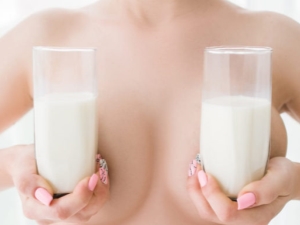
Cow's milk has always been considered a very valuable and healthy product. In the old days, even before the advent of mixtures, with a lack of milk in a nursing mother, a huge number of children grew up on cow's milk. It has long been considered the closest analogue to human milk. In India, cows are generally considered sacred animals for their ability to provide such a valuable, healthy and nutritious product. Both our mothers and grandmothers, with a lack of their milk or its low nutritional value, will immediately advise drinking milk to increase lactation. But is everything so clear today with the use of cow's milk during breastfeeding? Let's try to figure it out, weighing all the pros and cons.
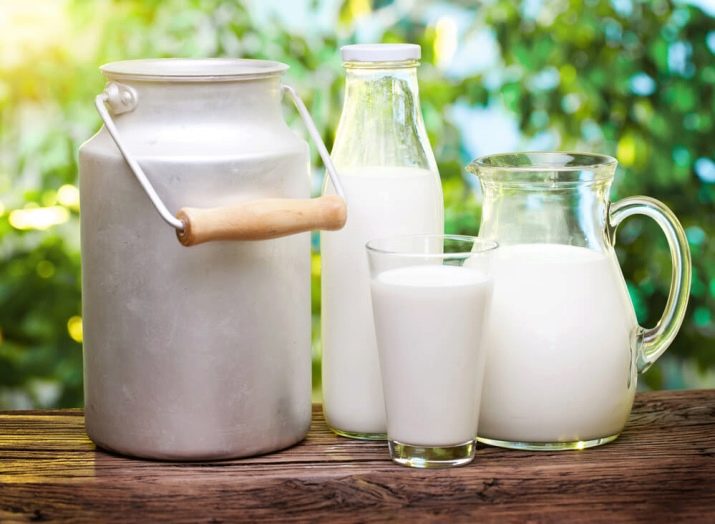
Benefit and harm
The benefits of cow's milk for a mother who is breastfeeding a baby are obvious:
- the natural product is very nutritious and in its composition is close to the milk of a nursing mother;
- natural milk is rich in useful substances, microelements, vitamins A, B, C, D;
- the product contains a large amount of digestible calcium, which is so necessary for a small person with the growth of bones, nails, hair;
- milk is rich in protein, which is involved in the growth and development of the baby, and this protein is of natural origin, which contributes to a large percentage of its absorption;
- It has long been known that the drink is a good natural sedative at night.
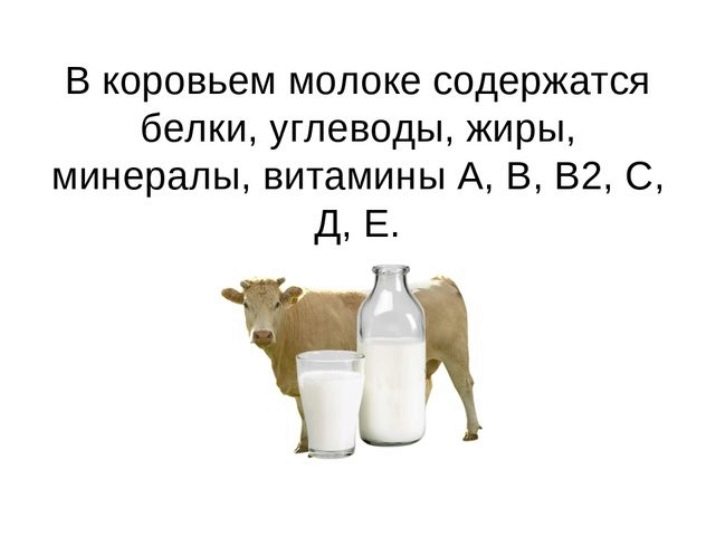
So, with the benefit we have decided, we will try to find with such a large number of positive characteristics and cons of the product. The harm of drinking cow's milk by a nursing mother is as follows.
- It cannot be sterile, so it is likely that pathogenic organisms and bacteria will be passed on to the baby from the mother, which can be very dangerous for the baby. Boiling will not help here, because vitamins and nutrients are destroyed at high temperatures and the whole point of drinking such milk is lost.
- The natural product contains a huge amount of protein compared to mother's milk. 32-34% protein in cow's milk versus 9-10% in breastfeeding mother's milk. It will be quite difficult for a baby with his undeveloped gastrointestinal tract to digest such a “heavy” product for him.
- Whole milk is very fatty, so the baby may experience colic, vomiting, spitting up and other symptoms that indicate problems with the digestion of such a fatty product.
- It contains a large amount of lactose - lactic acid. And in our civilization, the number of children with lactose intolerance is increasing.
- A number of children may react to this valuable natural product with an allergic reaction, manifested in rashes, the appearance of a dry crust on the skin, and redness.
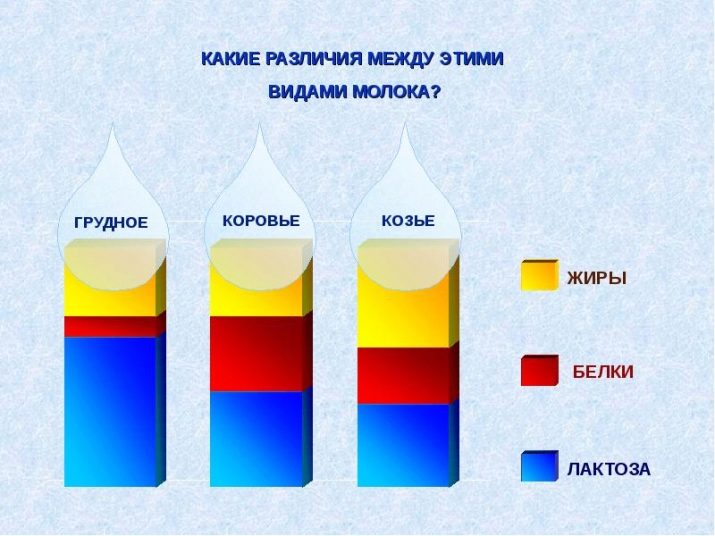
From the above, we can conclude that there are much more pluses than minuses. The biggest disadvantages are intolerance (allergy, lactose intolerance) and danger due to non-sterile production of this product. But doctors are ambiguous in their opinion regarding the feeding of a newborn baby with milk.Most oppose this, because a small body is not able to accept such unprepared and heavy food.
Quality product selection
We decided that natural cow's milk during breastfeeding for a mother is not very useful because of its non-sterility, which is dangerous for the baby and its rather high fat content. How to be? Completely eliminate it from your diet while breastfeeding?
Of course not! Doctors advise nursing mothers to use a pasteurized product. It is safe and useful, because it is kept at a temperature of 60-80 degrees for a long time, killing pathogenic microorganisms, however, while retaining all the beneficial substances. Milk can be either 1% or 2.5% or 3.2% fat. There are many manufacturers of this indispensable product on numerous supermarket shelves. But only a natural product, not a powder one, will benefit.
In different cities, surveys were conducted among consumers regarding the taste and quality of milk from different manufacturers.
The top three included:
- in the first place - TM "Vkusnoteevo";
- on the second - TM "House in the village";
- on the third - TM "Prostokvashino";
- then there are the trademarks "Vologda" and "Milk of our milking".

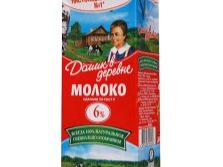

The product of these manufacturers is characterized by naturalness, rich taste and consistently high quality. If you want to try a drink of other brands, then you should pay attention to the following:
- the product must be manufactured and packaged in accordance with GOST;
- the address of the production of dairy products must be indicated;
- a natural product without preservatives is stored for no more than five days;
- the composition should indicate whole natural milk, not powdered.
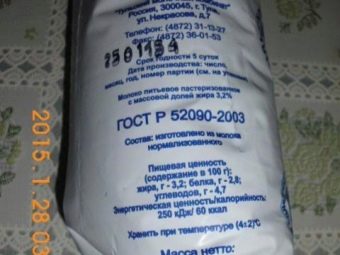
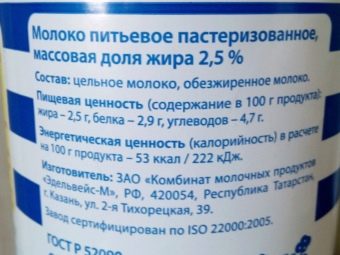
Worthy alternative
Along with cow's milk, they often talk about the use of goat's milk by nursing mothers. And not in vain. In terms of composition, this miracle product is closer to maternal than cow. However, the most important difference in it is the extremely low content of lactose, that is, lactic acid (only 10%). In addition, the content of homogeneous fats in milk makes it easier to digest. That is why it almost does not cause allergies, it is easier to digest. Plus, it's less oily.
Doctors are unanimous in the opinion that goat's milk will bring quite tangible benefits to the nursing mother and baby. Many do not like it for its peculiar smell and sour taste. The smell of milk appears when the goat is not properly cared for. These animals are very clean. Due to the beneficial properties and ease of assimilation, a nursing mother can use such a drink already at 3-4 weeks of a baby's life. Her milk will become more nutritious and healthy and will not bring any harm to the child.
It is very well absorbed. It should be introduced into the diet of a nursing mother in small doses. On the first day, drink a teaspoon and observe the reaction of the baby during the day. If the child is crying, has colic, redness all over the body, skin is peeling, then the introduction of this product should be temporarily excluded from the diet of a nursing mother. If everything went well, then you can gradually increase the dosage to one glass of goat's milk per day.

Baked milk can also be called an alternative to cow's milk. However, you need to be very careful here. It is worth introducing such milk in small doses and observing the reaction of the baby to a new product for 48 hours, and only then increase the dosage.In addition, due to the high fat content, such milk is recommended to be introduced only after the fifth month of a child's life.
Speaking of milk, one cannot fail to mention such a childhood delicacy as condensed milk. Is it possible for nursing mothers? Since condensed milk is made from natural whole milk, there are certainly benefits in its use. However, a large amount of sugar and a high concentration of protein and lactose make the product very high-calorie and “heavy”. Doctors recommend the maximum consumption of condensed milk in the amount of two tablespoons, and then not in one go.
You can eat condensed milk not earlier than after the third month of the baby's life. First, it is recommended to try one third of a teaspoon, then during the day to observe the baby for the presence of allergic reactions and the exclusion of lactose intolerance. If everything went well, you can gradually increase the amount eaten. It should be remembered that the product is very high-calorie and fatty.
An alternative to drinking milk in its pure form are milk soups and cereals. These dishes are independent in the diet, perfectly diversify the limited menu of a nursing mother, are healthy and easy to prepare. Milk soups with pasta, rice, buckwheat, as well as oatmeal, millet, buckwheat porridge, known to us since childhood, will make breast milk balanced and nutritious.

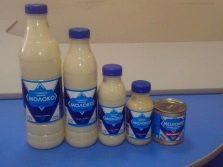

When using an alternative to pure milk, it is important to pay attention to the naturalness and freshness of the product. After all, it will be very difficult for a fragile child's body to digest a stale product, not to mention preservatives and stabilizers.
Rules for entering the diet and the required amount
So, when can cow's milk be introduced into the mother's diet while breastfeeding? And how long after the baby is born? Opinions about at what age you can start drinking milk vary. Some advise to start introducing the above product when the baby is two months old. Most pediatricians advise drinking milk only after the third month of a baby's life.
It is better to start drinking with milk of a lower fat content. And if everything goes well for the baby, then the amount and fat content can be increased to 3.2%. With HB (breastfeeding), each new product is introduced separately. After the first intake of the product, you should wait about 24 hours, observe the baby, and only then draw conclusions about the presence or absence of allergies or intolerances.
It is recommended to use new products in a very small dose - starting with 1 teaspoon. After all, if the baby has complications, you can always go to the hospital in the daytime and get the necessary help. After a day, you can try to increase the amount to two tablespoons. And then gradually bring the level of consumption to one glass per day.
To increase lactation, it is better to add milk to warm, non-hot tea. The concentration of the drink will be less, and the benefits for mom and baby will be greater. If the mother noticed signs of an allergy or intolerance to the product, it should be discontinued for at least a month. And only then make new attempts. If after a month the symptoms recur, then such experiments should be postponed for a longer period.


The manifestation of allergies in the baby
What to look for, how can you notice a possible allergy in a baby? 15-20 minutes after the child has consumed breast milk, after the introduction of a new product, the behavior of the child should be carefully observed. If he spits up, tucks his legs more often than usual, cries and shows signs of concern, then his body is having a hard time coping with a new food element in the diet.
If red spots began to appear on the body during the day, the skin began to peel off, then this indicates an allergic reaction to a product from the diet of a nursing mother. Here you should not self-medicate and you should immediately contact your pediatrician to avoid possible swelling and complications.


Tips from pediatricians
Today, pediatricians say that the use of a pasteurized dairy product at the right time, in the absence of contraindications, is beneficial for a nursing mother and baby. They support the idea of using it by nursing mothers to get a more vitamin and nutritious product for the baby. A well-known pediatrician in our country, Yevgeny Komarovsky, welcomes the use of milk, if it is natural, when the mother began taking it after the third month of the baby's life and subject to normal tolerance of the product. After all, if the protein is not broken down by the child's body, this gives complications to the liver, and with prolonged use, the child may have serious problems. In general, everything is good in moderation. The main thing is that the product is suitable for a particular person.
For information on what and how much to drink while breastfeeding, see the following video.

















